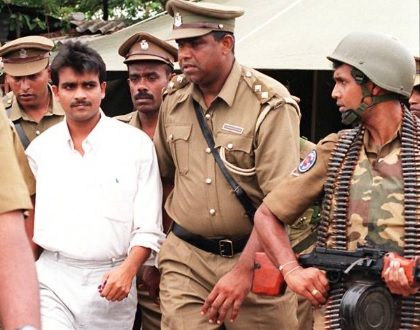Remembering Krishanthi Kumaraswamy and the Chemmani massacre 29 years on
COLOMBO – September 7 marked 29 years since the Chemmani massacre of 1996, when Sri Lankan soldiers abducted, raped, and murdered Tamil schoolgirl Krishanthi Kumaraswamy and three of her family members who went searching for her.
Krishanthi, an A-Level student at Chundikuli Girls’ College in Jaffna, was stopped at the Kaithady Army checkpoint and detained for “questioning”. Eleven officers then kidnapped, gang-raped, and killed her, burying her dismembered body in a shallow ditch. Her 16-year-old brother Pranavan, her mother Rasamma, and family friend Kirupakaramoorthy, who went looking for her, were also strangled and buried near the same site.
In 1998, six of the perpetrators were sentenced to death, while three others received 20-year prison terms. Corporal Somaratne Rajapakse, convicted in the case, later told court that between 300 and 400 bodies were buried in Chemmani, pointing to systematic killings during the war years. “Almost every evening, dead bodies were brought [to the Ariyalai SLA camp] and the soldiers were asked to bury them,” he testified, though he denied personally taking part in the murders.
Rajapakse’s testimony triggered investigations in 1998 – 99. Under court supervision, excavations began in Chemmani, leading to the recovery of 15 bodies. Some of the skeletons were found blindfolded and bound, strong evidence of executions. However, by late 1999, the Sri Lankan government declared that there were no additional mass graves beyond those already unearthed, effectively shutting down the probe.
The Chemmani case remains one of the very few instances where Sri Lankan military personnel have been successfully prosecuted for sexual violence and killings of Tamil civilians, even as rights groups continue to document widespread impunity.
In February this year, Chemmani once again returned to public attention when construction near a Hindu cemetery uncovered another mass grave. To date, 240 skeletons have been identified, with 239 fully exhumed. The discovery has reignited calls for accountability and raised questions about the extent of wartime atrocities that remain uninvestigated.
-ENCL



Comments are closed, but trackbacks and pingbacks are open.